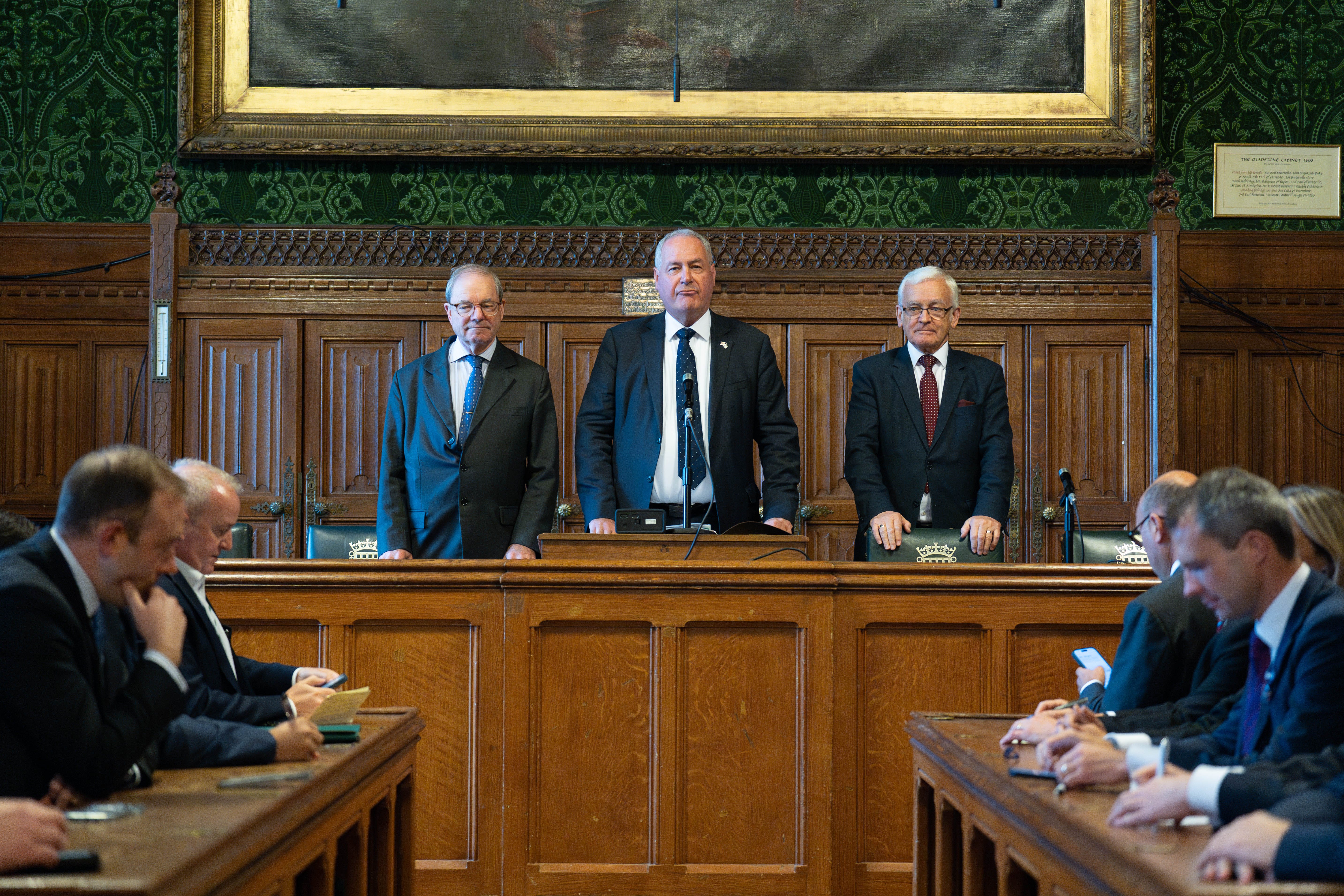Rule change makes it harder for Tories to ditch leader
The chairman of the 1922 Committee, Bob Blackman, said he expected the rule change to mean there were no ‘problems in that regard ever’.

Conservative MPs have made it harder to get rid of the party’s leader by changing the rules for calling a vote of no confidence.
Under party rules, Tory MPs can call for a confidence vote in the party leader by writing to Bob Blackman, chairman of the backbench 1922 Committee.
But after the election of Kemi Badenoch as party leader on Saturday, Mr Blackman said that his committee had earlier in the week increased the minimum number of letters required to trigger a vote, from 15% of the parliamentary party to a third.
That means 41 letters will now be required to trigger a vote, rather than 19.
My job is to make sure that the parliamentary party is listened to by Kemi, and make sure that everyone is rowing in the same direction
Mr Blackman told GB News that, as a result of the changes, he was “not expecting to see any problems in that regard ever”.
The Conservative Party has been riven by faction fighting in recent years, with two of the past four leaders facing confidence votes under the previous rules.
Both Theresa May and Boris Johnson survived confidence votes, only to be forced to resign shortly afterwards.
The rules protect leaders from a confidence vote during their first year in charge, but former 1922 Committee chairman Lord Brady is widely thought to have received enough letters during Liz Truss’s brief tenure in Number 10 to have passed the threshold for a vote.
Mr Blackman said that the party now had a “great opportunity” to “rebuild trust” with the public and “get the parliamentary party working as one team”.
He added: “My job is to make sure that the parliamentary party is listened to by Kemi, and make sure that everyone is rowing in the same direction.”
The only Conservative leader to lose a confidence vote was Sir Iain Duncan Smith, who was defeated by 90 votes to 75 in 2003 after struggling to make progress after his party’s heavy defeat in the 2001 election.
At that time, just 25 letters were needed to trigger a confidence vote.
Bookmark popover
Removed from bookmarks